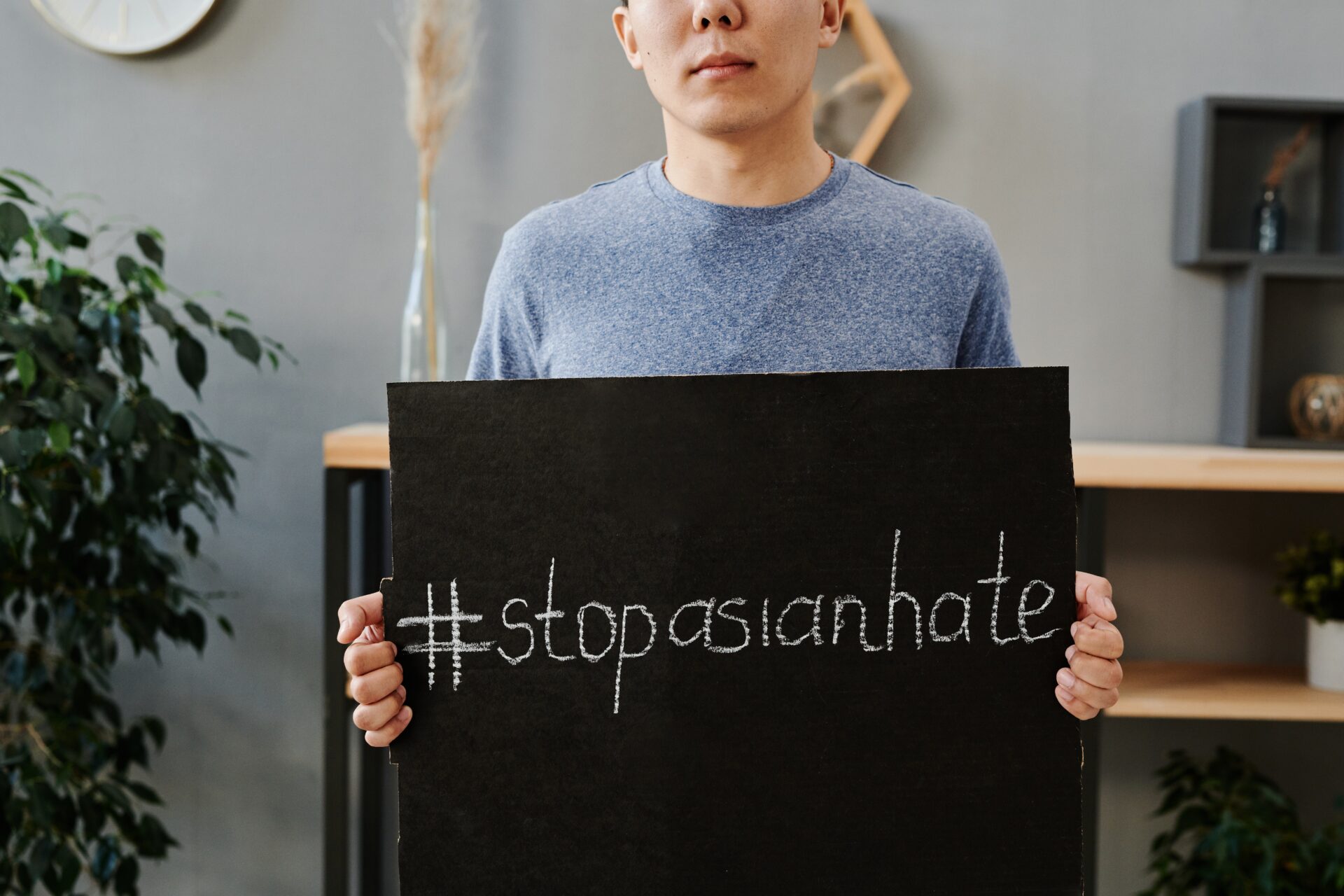May is Asian American and Pacific Islander (AAPI) Heritage Month, which represents a time to celebrate the generations of Asian and Pacific Islanders who have enriched our country’s history and play a vital role in both its past and future success. In a year with staggering statistics of discrimination, record job losses and hate crimes targeting the AAPI community, it is more important than ever to bring these issues and shocking statistics to the forefront. At Work Shield, we know that the workplace is a microcosm of what is happening in society at large, and in order to be part of the solution, we must first recognize the issue and then determine actionable solutions to support our AAPI colleagues in the workplace.
Workplace discrimination has impacted the AAPI community for years. While policies to protect employees have been in place since Title VII of the Civil Rights Act was adopted in 1964, decades of data have uncovered large gaps in earnings inequality, particularly for AAPI workers when compared to workers from other racial and ethnic groups. For example, a report from the Center for Economic Policy Research found that earnings inequality increased in the last two decades by only 5% percent among White workers, and by 15% for AAPI workers. In addition to the growing wage gap, AAPI employees have reported record-high numbers of harassment claims, with the primary site for discrimination being their place of work.
A recent report from the Stop AAPI Hate group uncovered shocking statistics of the more than 3,000 claims filed in the last year, which included the following:
- Verbal harassment (68.1%) and shunning (20.5%) (i.e., the deliberate avoidance of Asian Americans) make up the two largest proportions of the total incidents reported.
- Physical assault (11.1%) comprises the third largest category of the total incidents.
- Civil rights violations — e.g., workplace discrimination, refusal of service, and being barred from transportation — account for 8.5% of the total incidents.
- Online harassment makes up 6.8% of the total incidents.
In addition to the increased workplace discrimination that the AAPI community faced, the false rhetoric surrounding possible correlations between COVID-19 pandemic and the AAPI community caused hate crimes against Asian Americans in 16 cities to increase by 150% in 2020, with incidents ranging from violent attacks to verbal abuse. Due to this, AAPI workers faced significant challenges in the workplace, where Asian Americans, who have historically held the lowest unemployment rates of any other demographic in the U.S., suffered the largest increase in unemployment rates amongst all racial groups amid the pandemic, going from 3.4% in February 2020 to 25.6% in May 2020.
Overall, the drastic increase in unemployment and workplace discrimination against the AAPI community is discouraging, and in order to create positive and impactful change to support the AAPI community, we must implement actionable steps in the workplace that reflect intolerance to any sort of discrimination.
Create a safe space for dialogue
Show your support and be an ally by regularly checking in with AAPI peers, acknowledging the issues at hand and demonstrating care for their wellbeing as a colleague. It’s important to ensure that their concerns are heard and provide confidentiality if they should choose to share their experiences, whether from the workplace or another environment. Additionally, report any AAPI discrimination or harassment that you witness in the workplace through the appropriate reporting channels. Employers and employees alike should provide a safe environment to speak up and report discrimination and harassment without fear of retaliation or job loss.
Assess Current Policies in Place
Employers can show their support for AAPI employees and all employees by regularly reviewing current company policies to ensure that they do not discriminate against any specific groups or communities. In addition, organizations should internally review their hiring processes, compensation packages and benefit offerings, as research indicates that although Asian Americans are able to obtain professional occupations because of their higher education levels, they are less likely than white Americans to advance to management positions, even after their age, education levels, nativity status, and other characteristics that can affect their advancement are accounted for.
Educate and Diversify
Employers should educate themselves and their employees on AAPI discrimination in the workplace and examine how anti-Asian discrimination in the United States has translated to the workforce. By participating in regular trainings and having open and educational dialogue, employers and employees can learn to identify and combat workplace discrimination, particularly against the AAPI community. Additionally, as the daunting statistics shared above indicate, AAPI employees have the highest income inequality of any racial or ethnic group and are least likely of all demographics to be promoted into leadership positions. It’s important for companies to examine their hiring and promotion processes to ensure equal opportunity for growth and development, particularly in leadership positions. Increasing diversity in the workplace begins in the hiring process. Employers should implement fair recruiting practices and attract diverse talent so that potential hires know the company is committed to equitable hiring.
While the statistics surrounding AAPI discrimination rates are rattling, the goal is to recognize the issue in order to implement change in the workplace. Employers and employees should encourage open dialogue and implement solutions to ensure safe reporting, investigation, and resolution that is free of retaliation.
With Work Shield’s solutions, employers can feel confident they are providing the best resources for resolving issues in the workplace, including discrimination issues, ethical concerns, bullying, harassment and more. In turn, employees can feel safe to report workplace issues pertaining to discrimination, harassment and misconduct to an unbiased, certified team of third-party legal professionals without fear of retaliation. Businesses and their employees alike can feel confident in Work Shield’s solutions, as an avenue to combat discrimination in the workplace. Together, we can work towards a safer, more secure and better workplace environment for our AAPI colleagues.
To learn more about Work Shield’s solution, contact us here.
About Jared Pope Jared is Founder and CEO of Work Shield, the only start-to-finish workplace harassment and discrimination reporting, investigation and resolution solution that protects employees, employers and cultures at the same time. Jared practiced law and ran a practice focused on human resources, ERISA, benefits and employment matters for over 15 years and is a knowledgeable resource on workplace culture and harassment and discrimination issues. Connect with him on LinkedIn.





